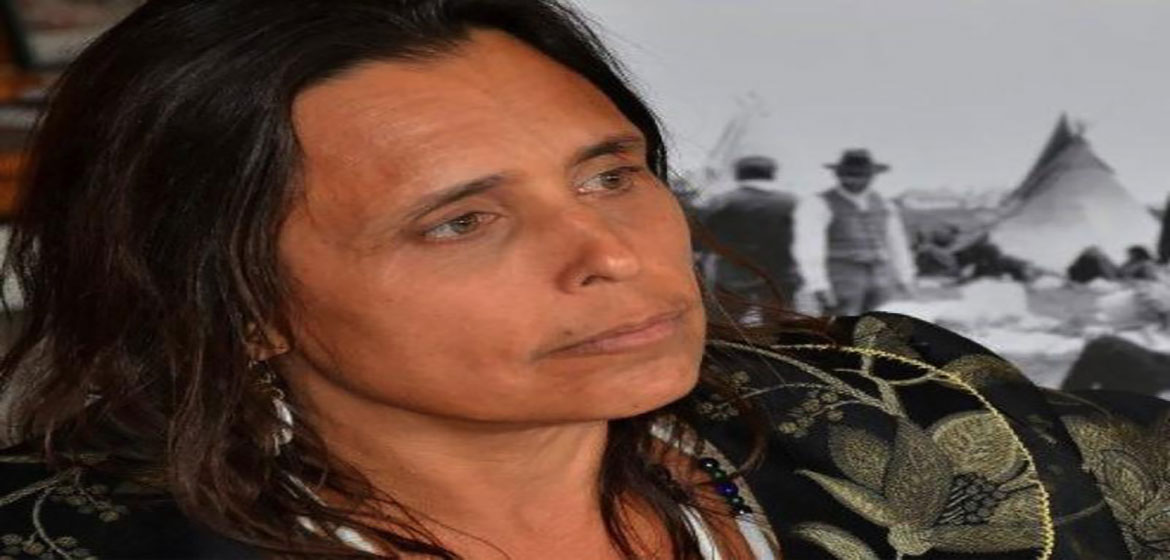By BETH ANNE AUSTEIN
Winona LaDuke: 'Be The Ancestor Your Descendants Would Be Proud Of' (recorded February 26, 2019, broadcast April 7, 2019)
"This is my idea of when America was great: when there were 8,000 varieties of corn ... when there were 50 million buffalo, the single largest migratory herd in the world ... in a territory with 250 different species of grass. Tremendous biodiversity: that is where life is, in biodiversity. Today, in the same landscape, you and I know that does not exist."
In February 2019, environmental justice activist, economist and writer Winona LaDuke delivered the annual , as part of the University of Montana President’s Lecture Series at Missoula's Wilma Theater.
The 2019-2020 University of Montana President's Lecture Series kicks off Wednesday, August 28, 2019 at 7:30 p.m. at Missoula's Wilma Theater with professor, philosopher, theologian, social justice activist and leading expert on race in the U.S., . West's lecture is titled, "." The event is free and open to the public; doors open at 6:30 p.m.
Winona LaDuke is an enrolled Anishinaabeg (Ojibwe) member, and lives on northern Minnesota's White Earth Reservation. She's known for her work on tribal land claims and preservation, as well as sustainable development -- all of it filtered through the goal of reclaiming and recentering indigenous women as leaders.
LaDuke graduated with a degree in economics from Harvard and went to work as a high school principal on the White Earth Reservation. She earned a master's in community economic development from Antioch, studying her reservations's subsistence economy. There, she began working with Women of All Red Nations, publicizing the American forced sterilization of native women.
In 1985, she helped found the , and in 1989, with the proceeds of a human rights award, she founded the . This non-profit foundation buys land within reservation boundaries from non-Ojibwe landowners, runs Anishinaabeg language and wind energy programs, and sells native foods made on the White Earth Reservation.
LaDuke also serves as Executive Director of , which she co-founded with the Indigo Girls in 1993, and which played an active role in the Dakota Access Pipeline protests of 2016.
"As many of you know, I was an undergraduate at Harvard University, and if you wanted to study the art from Europe, you went to the Fine Arts department. If you wanted to study indigenous art, you went to Anthropology. There was something about the valuation of art and knowledge in that that I think you need to say out front, which is that indigenous knowledge is not valued the same as Western knowledge. At this moment in time, I'm pretty clear that the paradigm that got us into this set of problems is not the paradigm that's going to get us out."
LaDuke maintains a significant role in international advocacy for indigenous people: she's given numerous presentations at United Nations forums and has opposed projects impacting indigenous communities. She is at the forefront of a movement to protect indigenous plants and heritage foods from patenting and genetic engineering.
In 1996 and 2000, LaDuke was on the Green Party ticket.
She's written six books, including Last Standing Woman, All Our Relations: Native Struggles For Land And Life, The Militarization of Indian Country, Recovering the Sacred: The Power of Naming and Claiming, and The Winona LaDuke Chronicles. LaDuke has co-authored and contributed to numerous other books.
In 1994, LaDuke was nominated by Time magazine as one of America’s 50 most promising leaders under age 40. She received the Thomas Merton Award in 1996, Ms. Woman of the Year (with the Indigo Girls) in 1997, and the Reebok Human Rights Award. In 2007, she was inducted into the National Women’s Hall of Fame, recognizing her leadership and commitment to community.
Throughout her talk, LaDuke presented slides. In the audio, you'll hear references to these visual images, including Votan Ik's "" mural, located in Duluth, Minnesota.
Source:
Related to SDG 5: Gender equality, SDG 10: Reduced inequalities



